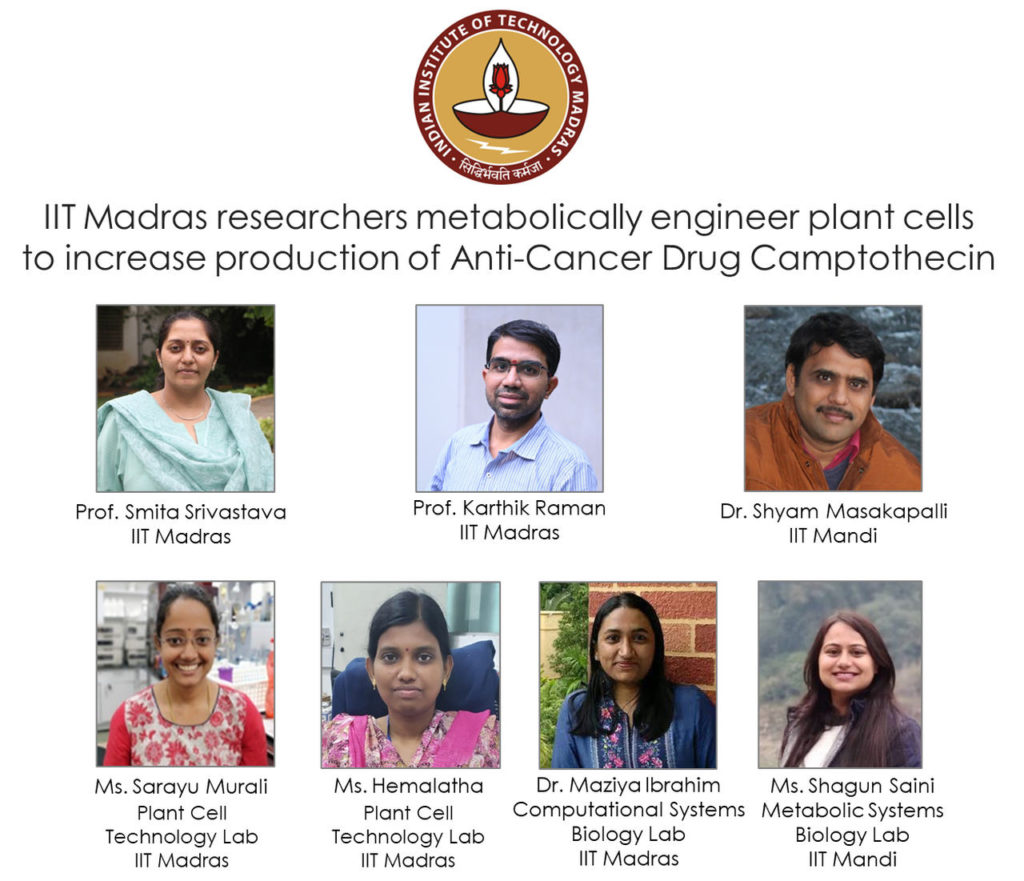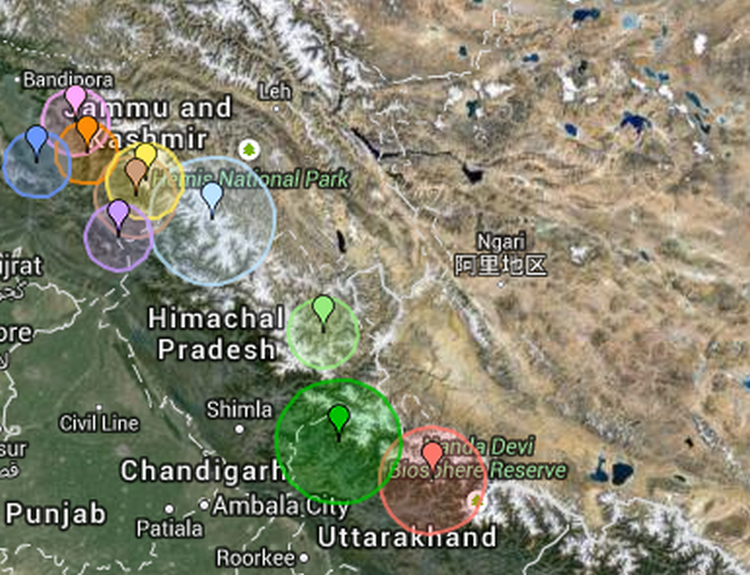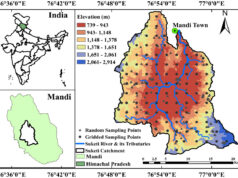Scientists at the Indian Institutes of Technology (IIT) Madras and Mandi have successfully engineered plant cells to boost the production of Camptothecin, a vital anti-cancer drug. The groundbreaking research holds promise for efficient commercial production of Camptothecin and other medically significant alkaloids, potentially reducing the reliance on endangered plants.
In a recent study, the Plant Cell Technology Lab at IIT Madras utilized computational tools to develop a genome-scale metabolic model for plant cells of Nothapodytes nimmoniana, the primary source of Camptothecin. Camptothecin, extracted from this endangered plant in India, is the third most in-demand alkaloid globally.
The researchers, led by Sarayu Murali, a PhD student at IIT Madras, identified a microbe as a sustainable alternative source for Camptothecin in a 2021 research paper. The conventional extraction method requires nearly 1,000 tons of plant material to produce just one ton of Camptothecin, contributing to the endangerment of the plant.
Due to extensive overharvesting, the major plant sources of Camptothecin are now red-listed by the International Union for Conservation of Nature (IUCN). The population of N. nimmoniana has declined by over 20% in the past decade alone.
The current research focuses on metabolic engineering of plant cells using a genome-scale model, spearheaded by researchers from IIT Madras and IIT Mandi. The study aims to enhance and sustain the production of Camptothecin, meeting market demand while conserving natural resources.
The Principal Investigator of the project, Prof. Smita Srivastava, emphasized the integration of metabolic engineering with bioprocess engineering principles for enhanced and sustainable drug production. Co-investigator Prof. Karthik Raman highlighted the adaptability of the technology for the production of other high-value phytochemicals.
Camptothecin is a crucial anti-cancer drug lead molecule, and its extraction from plants like Camptotheca acuminata and Nothapodytes nimmoniana has led to their endangered status. Climate change and extensive deforestation have further threatened these plants.
Sarayu Murali detailed the reconstruction of the metabolic model using experimental data and the use of computational tools to identify enzyme targets for optimizing Camptothecin production. The team successfully validated the overexpression of a key enzyme, resulting in a 5-fold increase in Camptothecin yield.
Dr. Shyam Kumar Masakapalli highlighted the potential impact of this research in bioengineering plant cells for sustainable production of high-value phytochemicals. With cancer being a leading cause of death globally, the increased demand for anti-cancer drugs underscores the urgency of such research.
In 2020, the World Health Organization reported nearly 10 million deaths worldwide due to cancer, with India expecting a rise in cases to 15.7 lakh by 2025, according to the Indian Council of Medical Research-National Cancer Registry Programme. The innovative approach by IIT researchers offers hope for meeting the rising demand for anti-cancer drugs in a sustainable manner.















